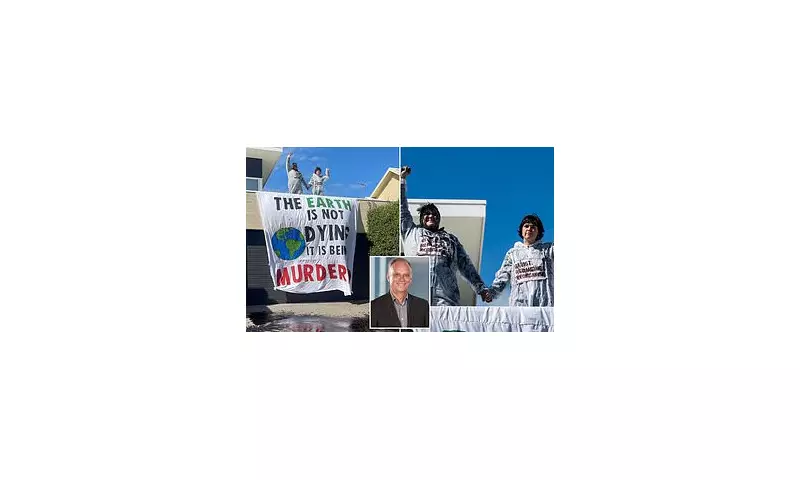
In a brazen daylight escalation of environmental activism, climate campaigners from the group Fossil Free London stormed the £2.5 million Hampstead residence of BP Chief Executive Bernard Looney on Thursday morning.
The shocking stunt saw protesters scale the roof of the luxury property, which they proceeded to drape with vast sheets of black fabric—a symbolic representation of the 'death and destruction' they allege the oil giant perpetuates.
Dramatic footage captured by the group and shared online shows activists unfurling a banner from the roof that read, 'BERNARD LOONEY – MURDERING THE PLANET FOR PROFIT.' The scene unfolded in the normally tranquil and affluent North London neighbourhood, drawing stunned reactions from residents.
A Calculated Message
In a statement released following the action, Fossil Free London delivered a blistering indictment of Looney's leadership. 'While Bernard Looney enjoys the comforts his millions provide, his business model is literally burning the world,' a spokesperson declared. 'We are here to bring the reality of the climate crisis, which his company fuels, right to his doorstep.'
The group accused BP of 'greenwashing' its public image through promises of a renewable energy transition while continuing to invest heavily in new oil and gas extraction projects.
Police Response and Aftermath
The Metropolitan Police confirmed they were called to the address 'following reports of protesters on a roof.' Officers attended the scene and engaged with the group. Reports indicate that Mr. Looney was not present at the home during the incident.
This direct action marks a significant intensification in tactics employed by climate groups in the UK. Moving beyond public protests and roadblocks, targeting the private homes of high-profile executives signals a new, more personal frontier in environmental activism.
The incident has ignited a fierce debate online and amongst commentators, raising complex questions about the limits of protest, corporate responsibility, and the growing desperation of climate movements in the face of perceived governmental and industrial inaction.





